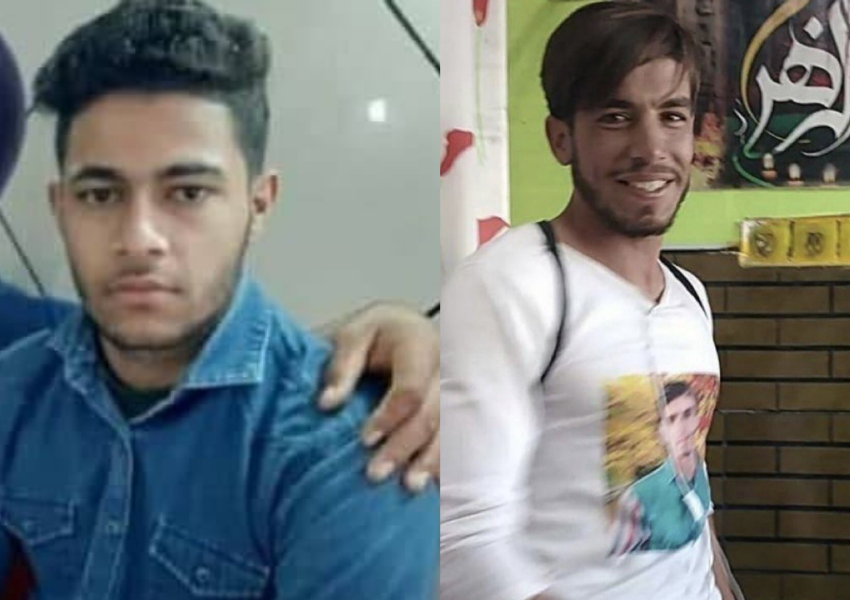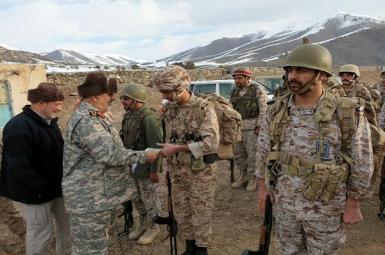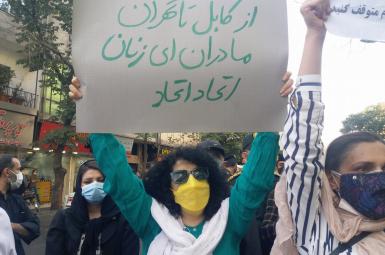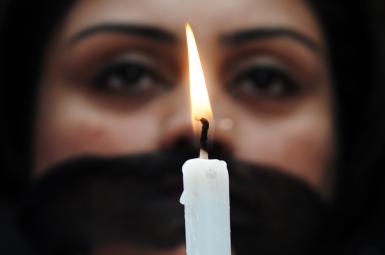
'Forced Interviews' With Families Of Two Men Killed In Iran Raise Questions
Iran’s hardline media, put out video interviews with family members of two young men killed during demonstrations in Khuzestan Province, saying they were not involved in the protests, and they even had good relations with the Revolutionary Guard and the Basij militia. Some social media users, however, are highly suspicious of the circumstances in which the interviews were made and claim the families may have been under pressure to absolve the security forces of responsibility in the killings.
In a video published Sunday by the IRGC-affiliated Fars News Agency, the uncle of Ghasem Khaziri, 18, who was shot on Friday during evening protests in Ahvaz and died in hospital on Saturday, said he was a devout Muslim and a member of the Basij militia of the local mosque. "He was not one to get involved in protests and riots," he says.
For three consecutive nights, mainly young male protesters, have closed many key roads and highways in several cities in Khuzestan and in some cases clashed with security forces trying to disperse them. At least two young men were shot dead in suspicious circumstances since Thursday.
After weeks of water shortages hundreds of protesters in different cities and towns have come into the streets since Thursday, July 15 to protest lack of water. Locals blame the government for years of mismanagement and building too many unnecessary dams which prevent water from reaching urban water reservoirs and agricultural lands.
Iranian security and intelligence services have a long track-record in soliciting confessions and conducting forces interviews with dissidents and their family members who would be put in a position to repent and blame others to have misled them.
Another video published by Fars on Saturday showed the father of another protester, 30-year-old Mostafa Naimavi, who was shot dead in Shadegan on Friday. In the video, Naimavi's father, an ethnic Arab, similarly says in his native Arabic that his son was not someone who would commit offences or protest and claims that he had friendly contacts with Basij militia and the police. "Rioters and saboteurs shot my son, not the government," he says in the interview and Naimavi's brother urges the government and security forces to take action against those responsible for the young man's death. "They only killed him to stir riots," he says.
On Saturday the caretaker governor of Shadegan in an interview with the Iranian Students News Agency (ISNA) attributed Naimavi's killing to "opportunists and rioters who were shooting at security forces and the protesters". ISNA said some of those responsible for Naimavi's shooting had been arrested while Fars News Agency claimed the culprits had not been identified.
Fars News Agency claimed that "terrorist groups" had "infiltrated" the people's protests and their actions "caused concerns" among protesters. Fars has suggested that the Arab Struggle Movement for the Liberation of Ahwaz, a separatist insurgent group which advocates Khuzestan’s secession from Iran, may be involved in stirring the protests.
Videos of protests show protesters in some locations chanting slogans in Arabic. Khuzestan has a large Arabic-speaking rural population that has taken the brunt of water shortages.
Many ordinary people on social media blame the security forces for the deaths of the two young men and claim that the video-taped interviews were stage-managed by security forces. "The hackneyed game of the regime: Khomeini and Khamenei's framed photos and Ghasem Soleimani's poster on the wall to justify the killing of a young man," journalist Siamak Dehghanpour tweeted. Another Twitterati called the interviews "forced confession-interview".









